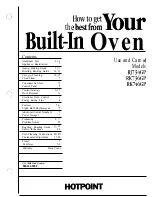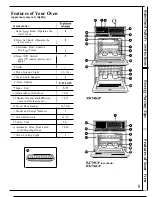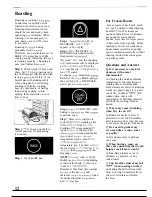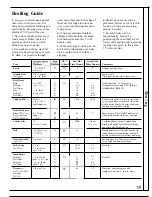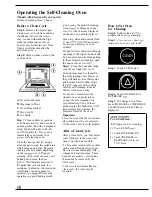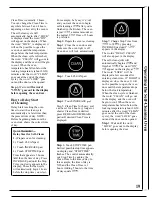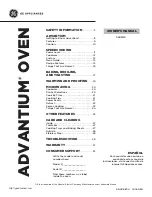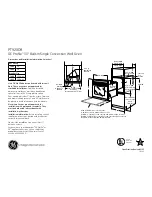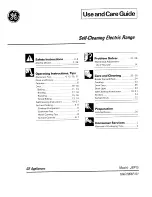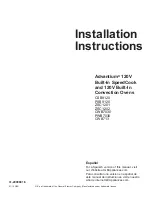
IMPORTANT SAFETY
Energy-Saving
INSTRUCTIONS
(continued)
Tips
Self-Cleaning Oven
(on model
the UPPER
OVEN ONLY)
●
Do not clean door gasket
before reading special
cleaning instructions in the
Self-Clean section of this
book. The door gasket is
essential for a good seal. Care
should be taken not to rub,
damage or move the gasket.
●
Do not use oven cleaners.
No commercial oven cleaner or
oven liner protective coating of
any kind should be used in or
around any part of the oven.
●
Clean only parts listed in
this Use and Care Book.
Before self-cleaning the
oven, remove broiler pan
and other cookware.
●
Listen for fan—a fan noise
may be heard sometime during
the clean cycle. This is normal.
●
Do not use aluminum foil
to line oven bottoms, except
as suggested in this book.
Improper installation of these
liners may result in a risk of
electric shock or fire.
●
Be sure to wipe up excess
spillage before starting the
self-cleaning operation.
If You Need Service
Read the Problem Solver in
the back of this book.
●
attempt to repair or
replace any part of your range
unless it is specifically
recommended in this book.
All other servicing should be
referred to a qualified technician.
SAVE THESE
INSTRUCTIONS
●
Preheat oven only when necessary.
Most foods will cook satisfactorily
without preheating. If you find
preheating is necessary, listen for
the beep, and put food in oven
promptly after the oven is preheated.
. Always turn oven off before
removing food.
During baking, avoid frequent
door openings. Keep door open
as short a time as possible if it
is opened.
●
Cook complete oven meals instead
of just one food item. Potatoes, other
vegetables, and some desserts will
cook together with a main-dish
casserole, meat loaf, chicken or
roast. Choose foods that cook at
the same temperature and in
approximately the same time.
●
Use residual heat in the oven
whenever possible to finish cooking
casseroles, oven meals, etc. Also,
add rolls or precooked desserts to
warm oven, using residual heat to
warm them.
4

